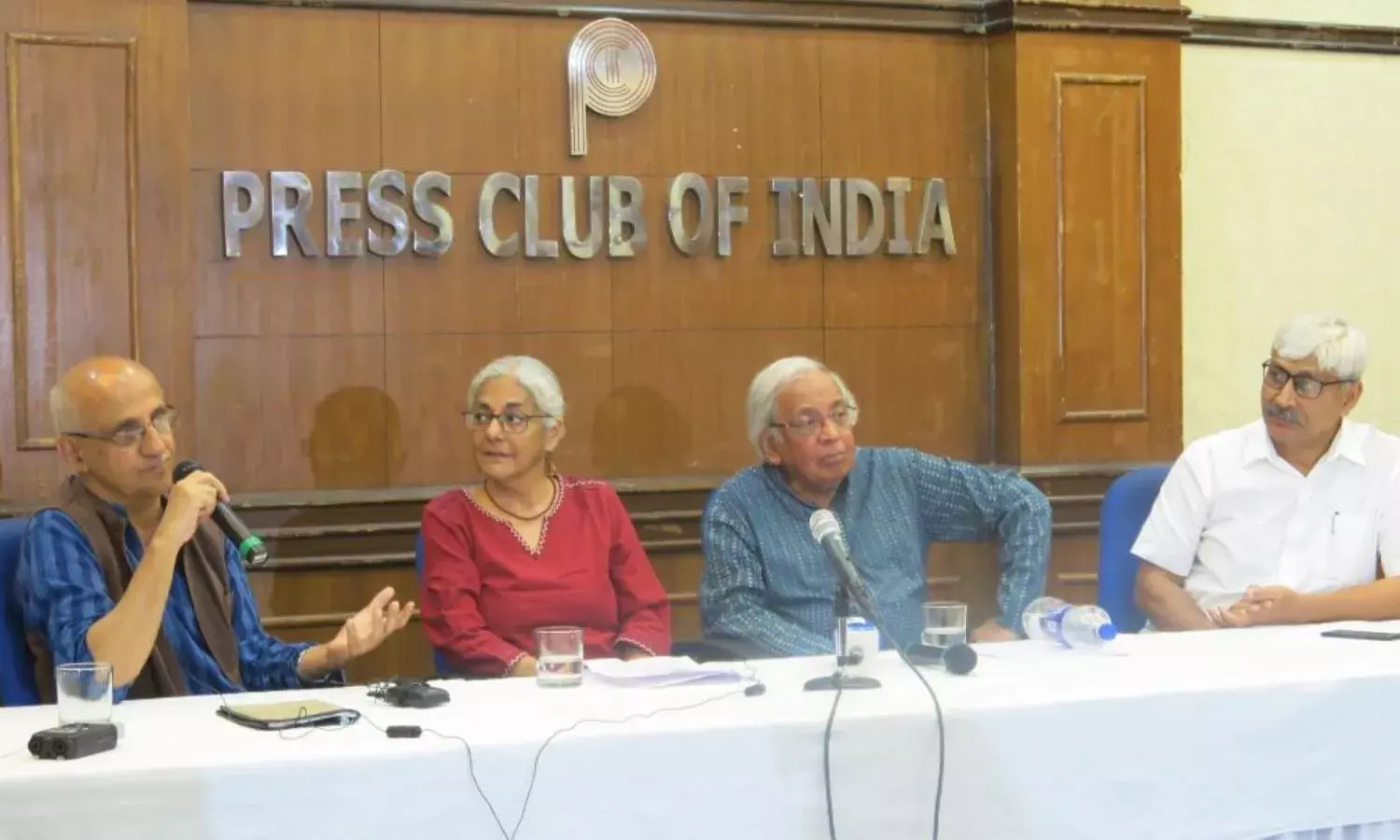Amid De-Citizenship Fears, Writers Rise to Defend Miyas and Poetry
Guwahati police have registered FIRs against journalists and teachers

NEW DELHI: On Thursday, eminent poets and writers gathered at the Press Club of India to express solidarity with teachers, writers and creators of Miya poetry in Assam. The press conference organised by Karwan-e Mohabbat was addressed by writer Githa Hariharan, poet, critic and former civil servant Ashok Vajpeyi, professor of Hindi Apoorvanand, and rights activist and former IAS officer Harsh Mander.
On July 10 an FIR was registered at a police station in Guwahati against writers, poets and journalists on multiple grounds, including Sections 120B (conspiracy) 153A (promoting enmity) 295A (maliciously outraging religious feelings) and 188 (disobedience) of the Indian Penal Code. Those charged include journalist Forhad Bhuyan and writer and teacher Abdur Rahim.
Miya poetry has emerged in recent years as a strong mode of expression for the community of Bengali-speaking Muslim Assamese. It takes its name from the pejorative “miya” used to refer to members of the community as “Bangladeshis” or “illegal immigrants” who pose a threat to Assamese society and culture so called.
Amid this everyday discrimination, Miyas have taken this slur and employed it to assert themselves and express their art. The publication of Miya poetry has provoked a widespread backlash in Assam, as witnessed in public vitriol from once “tolerant” intellectuals, and the filing of police complaints and online harassment against Bhuyan and Abdur Rahim.
The implementation of the National Register of Citizens along with the proposed Citizenship Amendment Bill poses a looming threat to this community, a situation they share with many Bengali-speaking Hindus in Assam.
The Union government claims that the NRC and the proposed religion-based amendment to India’s Citizenship Act are intended to remove “illegal immigrants” from Assam and eventually the entire country, in rhetoric most recently asserted by Union Home Minister Amit Shah.
Speaking at the conference, Harsh Mander provided the context behind the arrests. “The stifling of such poetry brings about an impoverishment in society. Where will the world go without the protest poets of the Dalits, the Blacks, the LGBTQ movement and communities which have suffered discrimination?”
Mander highlighted the plight of the Miya community, stating that “even in the fury of the floods in Assam, they don’t want to leave their home, as it is the last evidence that they have lived in Assam. The documentation processes for citizenship in themselves are treacherous, for if there is a slight mistake in the spellings or details, they will be behind bars.”
“These people are in distress and poetry is an important means through which they have articulated this sentiment.”
Githa Hariharan emphasised that the incident must be recognised as an “attack on the freedom of speech”. “It is important to express solidarity for those who have been arrested arbitrarily… We have to build a culture of resistance against the NRC. The power of this resistance lies in drawing attention to factual experiences, and in engaging with languages and dialects, especially by accepting new ones.”
For Ashok Vajpeyi, “the incident was an attack on the multilingual and multireligious heritage of the country. The writing of poetry is an assertion of democracy, and when such expressions are stifled by the state it reflects a failure and degradation of Indian democracy.”
“When people who write Miya poetry are allowed to express themselves, it only reflects the strength of Indian democracy,” Vajpeyi added.
He said that this tradition of poetry “is a tradition of Satyagraha, one that is older than Gandhi’s own protest politics” and can be traced back to the works of Kabir.
“The poet should be allowed to express themself, irrespective of what others think. There is a multiplicity of truths and nobody should have a monopoly over it.”
Apoorvanand lamented the reaction of many “sensible” people from Assam, “who objected to the language employed by those writing Miya poetry. They argue that the poets should write in Assamese, and not in the language or dialect of their own choice.
“The writers of Miya poetry have been harassed because they decided to write in a language of their choice. They have been labelled anti-national and anti-Assam.
“But it should be the liberty and the duty of poets to express themselves in the language of their choice.”
Photographs: Kapil Bhardwaj, EFE News Agency



